Pre-Hospital Emergency Care
The algorithm to confident providers is VR training
Built on evidence-based protocols, we help your team minimize readmission, medical error and improve their ability to recognize high-risk patients.
First Responders Advanced Cardiac Life Support (FRACLS)
Realistically model cardiac arrest and non-cardiac arrest scenarios across 13 core arrhythmias
Provides a virtual, zero-risk, environment to practice and learn critical resuscitation management for your teams’ patients.
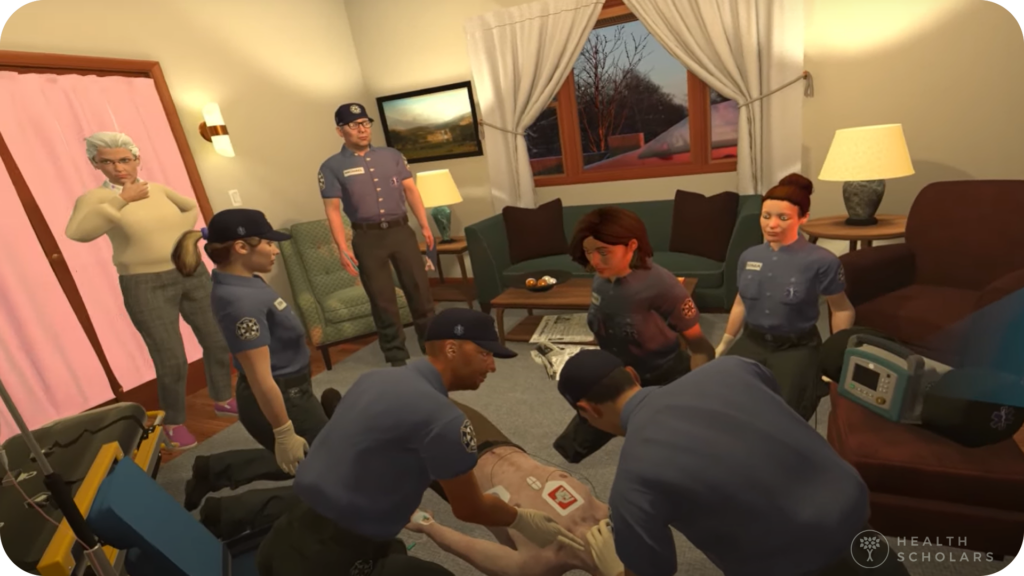
Pediatric Emergency Care
Pediatric emergencies are challenging- your response doesn’t have to be
Providers need to recognize the subtle indicators of severe illness in infants and children without delay and initiate stabilization or CPR when indicated.
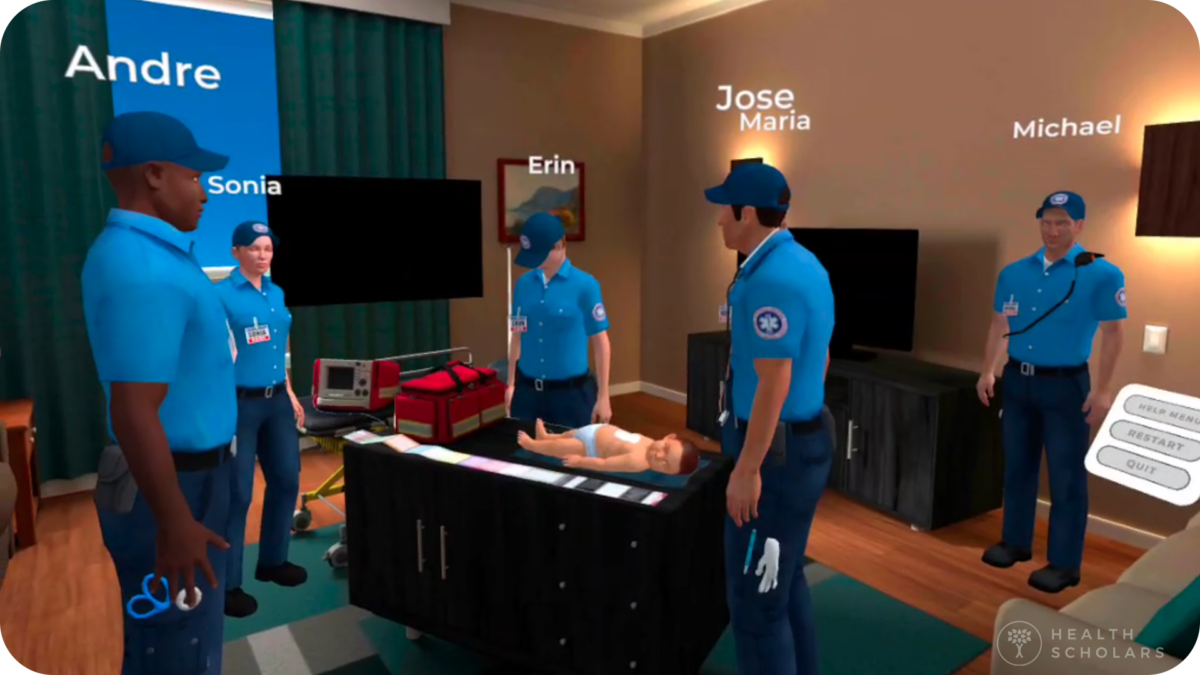
Pediatric Emergency Assessment
Provide regular experienced-based training to all your pediatric providers
Our VR training recreates the pertinent findings in a real-to-life patient and graphically teaches the association of PAT patterns with life threatening health conditions.
Pediatric Emergency realistically models nuanced pediatric scenarios and physical findings on racially diverse patients. It utilizes adaptive learning technology to instruct, evaluate and refine Pediatric Assessment Triangle proficiencies based on provider performance And provides a virtual, zero-risk, environment to practice and learn critical pediatric assessment skills.
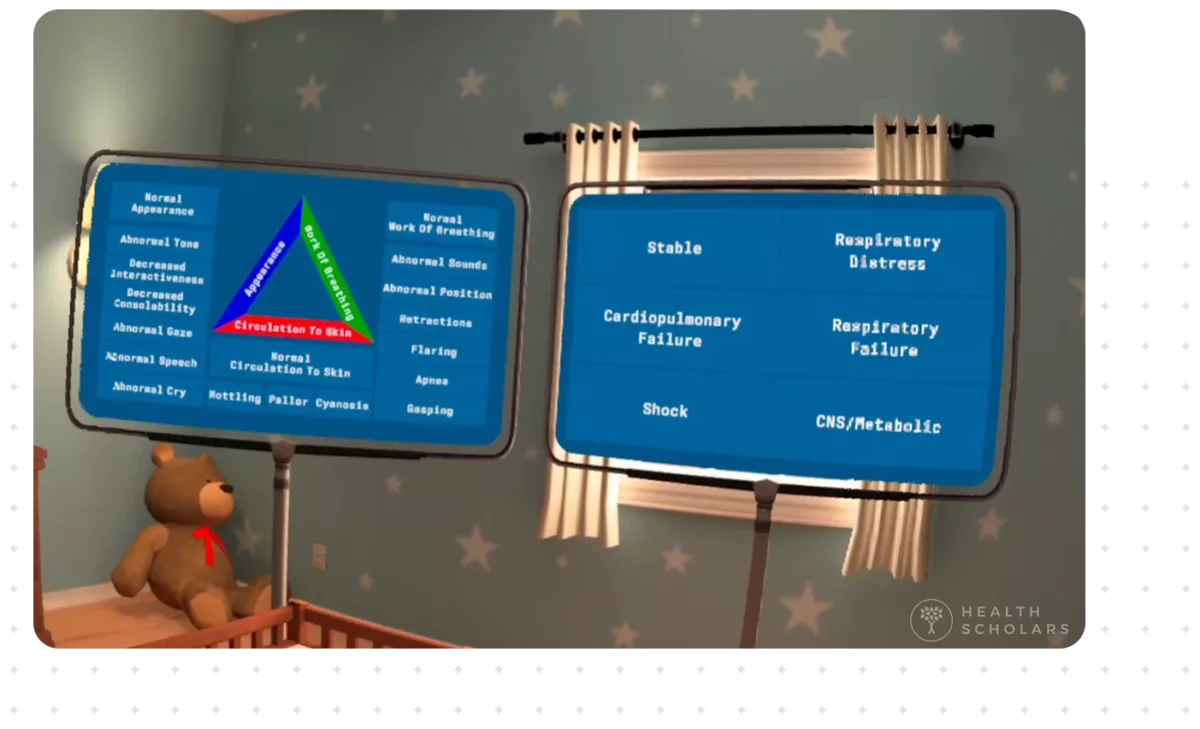

We found that VR based training was superior to video based training in enhancing performance in a simulated fire scenario. Those who underwent VR training recognized the issue more quickly and were more likely to appropriately douse the flame and protect the patient when compared to those who had video based training.
Daniel Katz MD,
Director of Education Mount Sinai HELPS Center
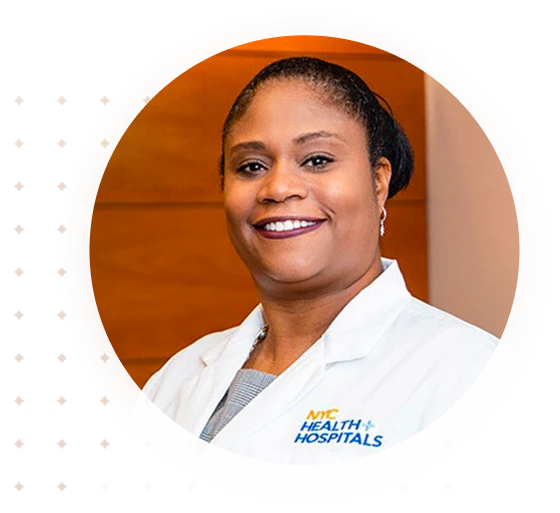
Our public health system is proud to be a leader in virtual reality simulations that ensure our providers have the life-saving skills necessary during these situations. Being able to provide convenient, easily accessible, on-site, and realistic simulations is imperative when you want to both provide these important skills-building opportunities without disrupting any patient care.
Being able to offer a diverse suite of high-tech simulations that not only realistically portray the medical scenario, but also reflects what our workforce and patients look like is an important part of training our staff to provide the highest quality, expert care no matter the situation the arises in the delivery room.
Wendy Wilcox, MD, MPH, MBA, FACOG,
Chief Women's Health Services Officer,
NYC Health + Hospitals
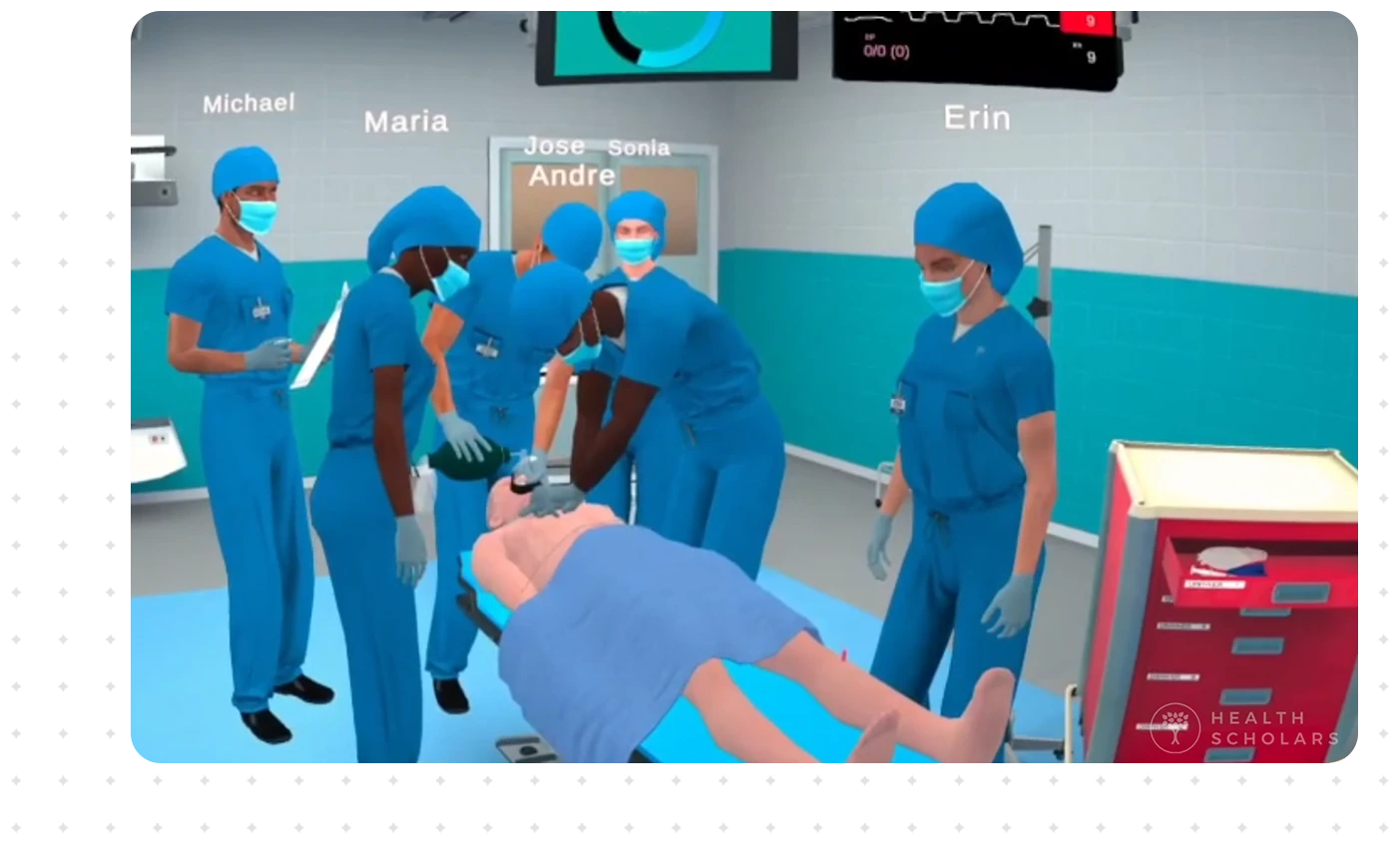
How is training in VR scalable?
VR is faster than regular training, averaging at around 30 minutes per app, from putting on the headset to debrief. Some applications are even as fast as 10 minutes!
Only the trainee is required to attend, as our apps don’t require a facilitator. This makes it easier to schedule, any time, from anywhere with wi-fi.

